Flying mammals close to marsupials and to primates.
Basically they are natures caped crusaders with the largest cloak from Little finger to foot to tail and webbed digits. They can glide at least 70 metres.
These are generally not easy to find, let alone shoot, since they fly at night but on
Langkawi in the Andaman Sea they can be found quite easily.
Just strolling in the evening I saw several immobile on trees.
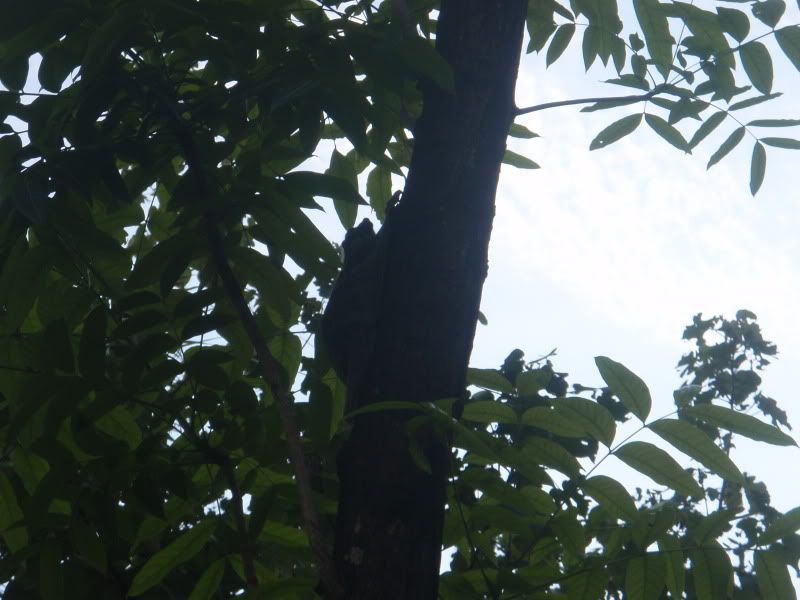
They have good fieldcraft.
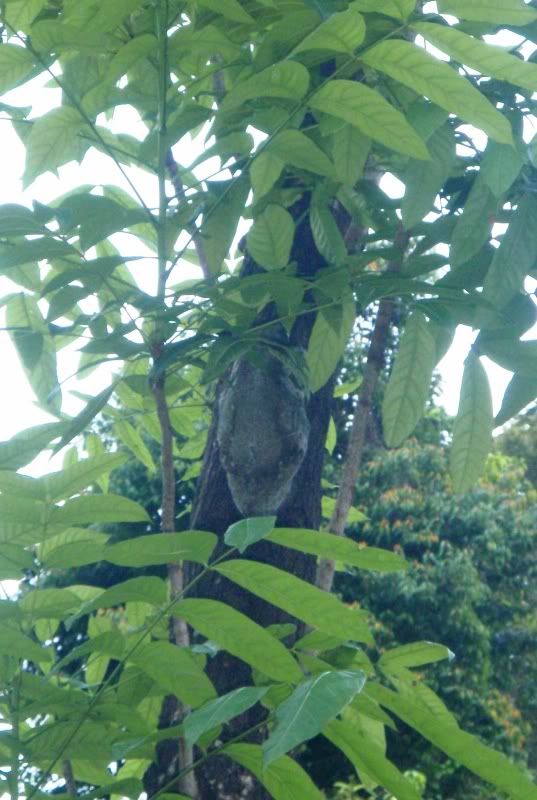
They favour the shady side of the tree so a potential predator is looking against the sun and in the tropics that hurts.
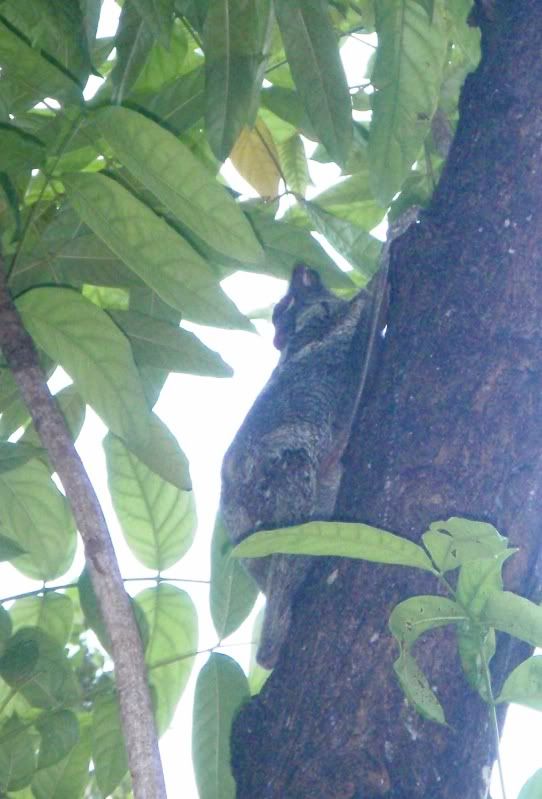
At evening time is easier to make out the shape of the colugo but that made photographing them a challenge against the setting sun.
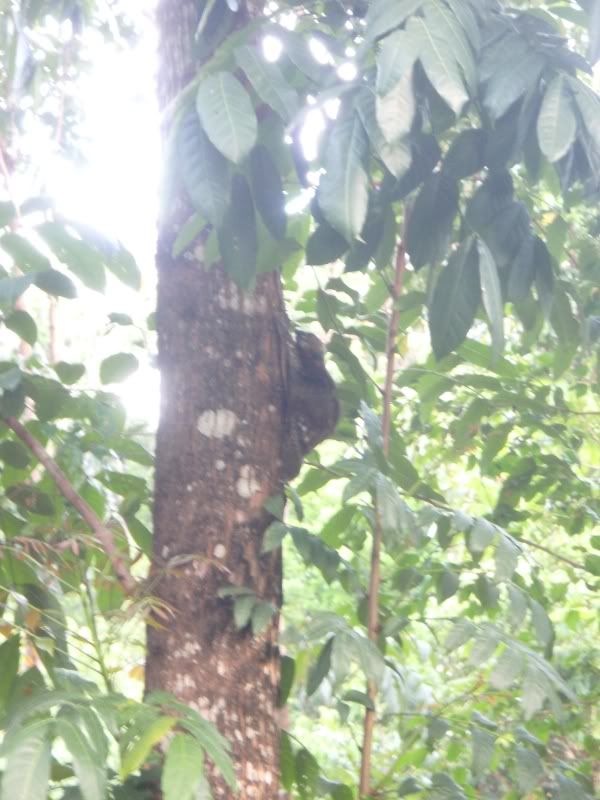
Find the colugo
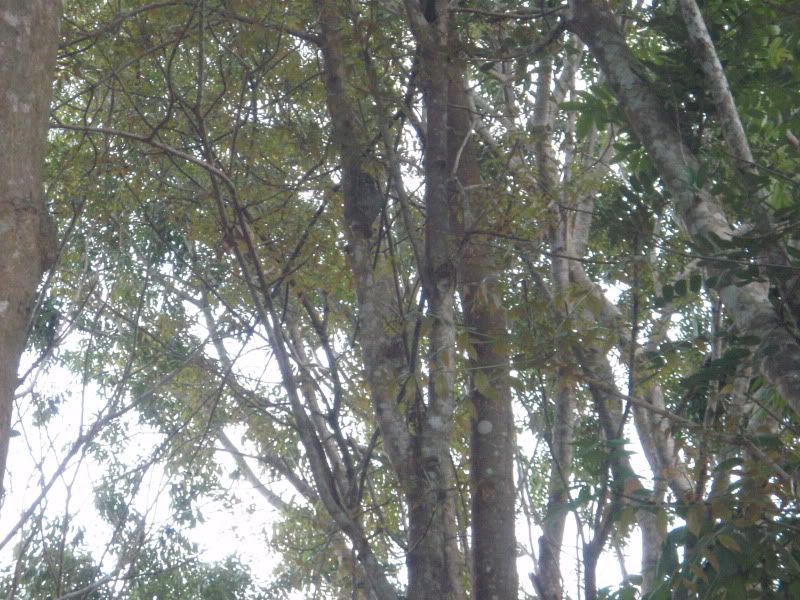
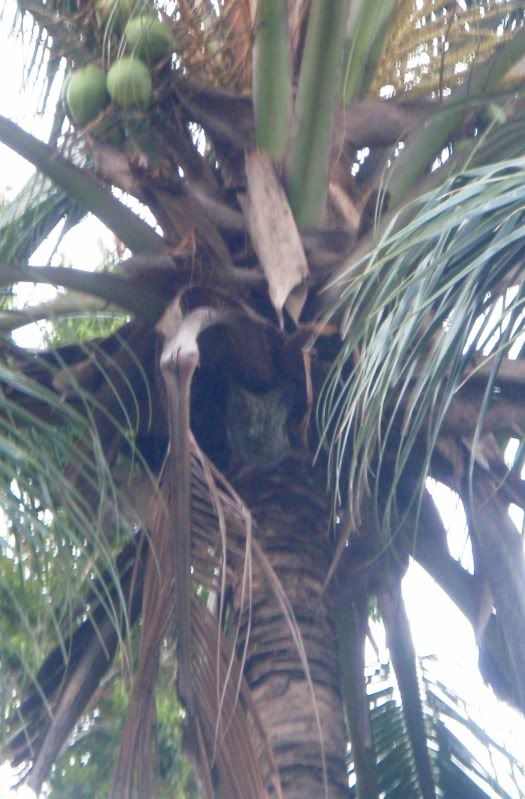
While looking this fellow got into the picture.
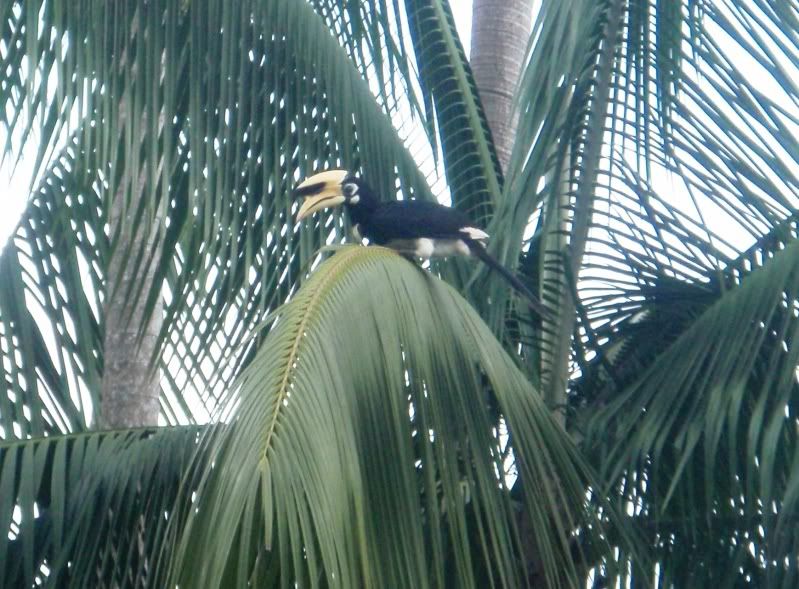
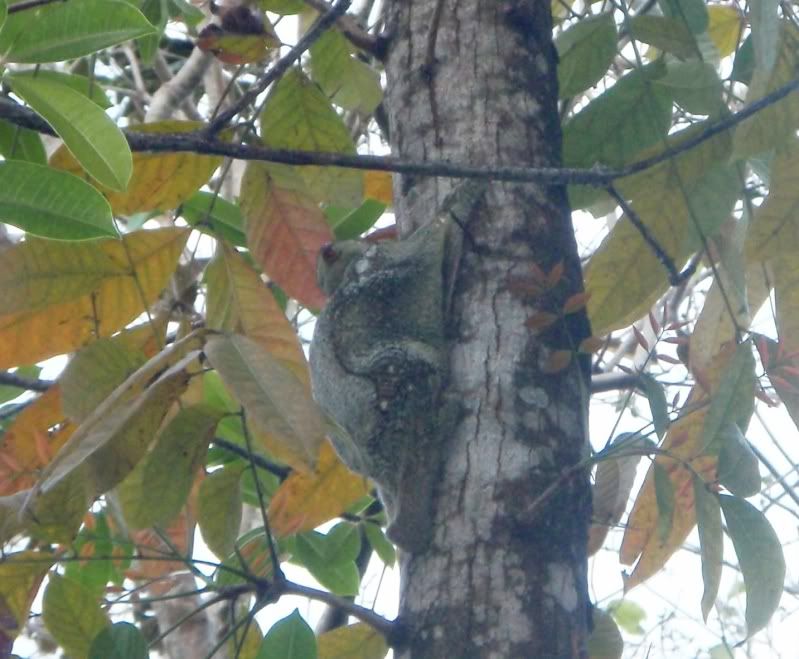
In the late evening I met with Dev a nature guide whom I knew slightly. This is his turf and he is just the person to observe colugos with at night. He had a group of tourists and I stayed just behind so as not to get in his way. We were waiting for dusk.
Dev is a character. His introduction to wildlife is not dry textbook stuff but full of drama and humour. There were two species of monkey on the island omnivorous macaques and herbivore langurs.
Whats the difference between the two? he asked in his deep voice. Some tentative answers were offered but he was not satisfied.
Testicles, he boomed, look at the macaques testicles pointing at a particularly well endowed mature male. He then went on to describe the different social structures and the role of aggression in macaque life.
Who do you think he is most likely to attack, he inquired of a boy just in his teens, Him. Her, me or you?
The boy had no answer.
You, he said solemnly like a mourner, his eyes opening wide like a silent movie negro.
We are mature males Alpha males he will not get into a fight with us. Or her, she is a female. He will attack you, a young male.
Almost on cue, the big macaque opened his mouth and showed his Dracula like fangs and the boy, quite nervous now, withdrew into the middle of the group.
The talk went on in this vein everybody paying close attention to Dev.
Night had fallen and Dev illuminated colugo after colugo. He did not wave his torch around but seemed to be able to see them and then lit them up.
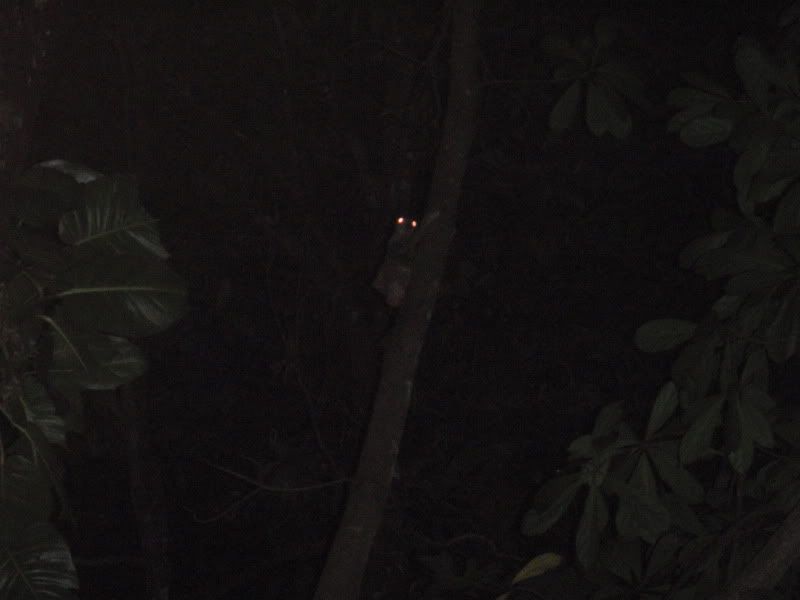
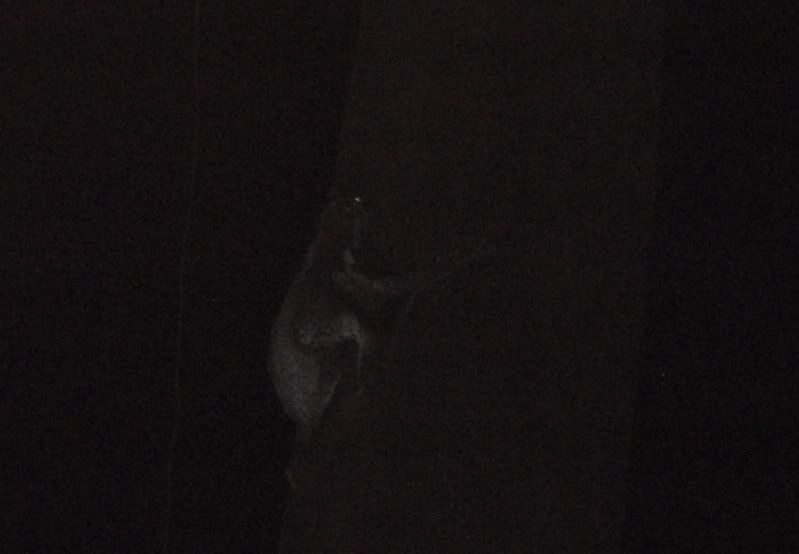
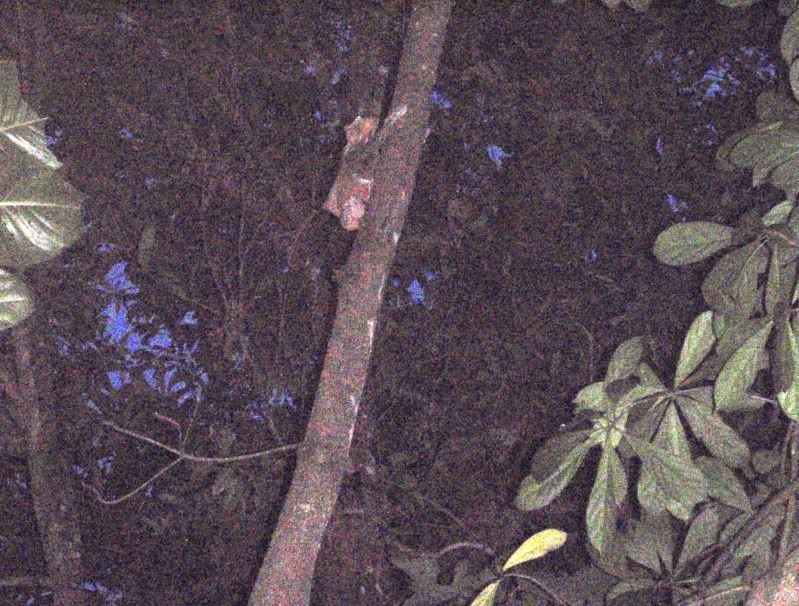
That was great for viewing but not for photography as they quickly went into aerial E & E
This is what I took. At least I got the eye.
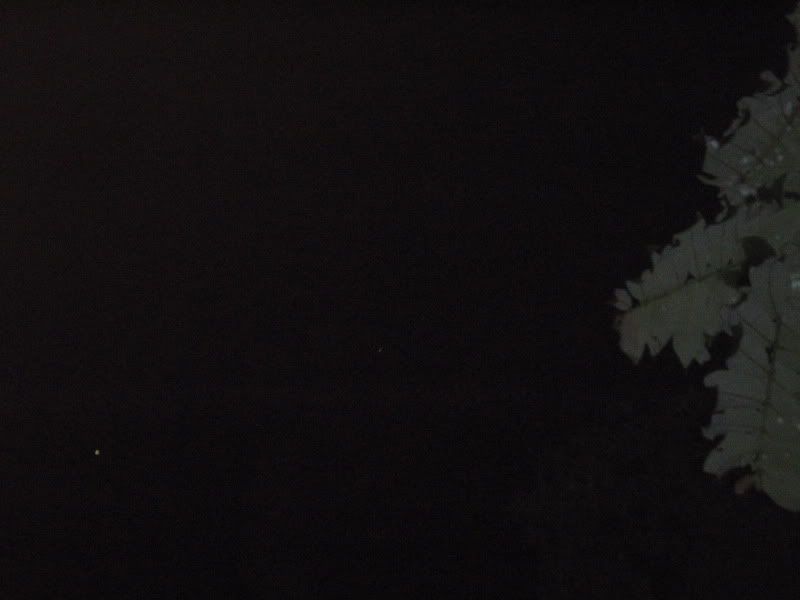
Not only were there many colugos but there were Giant Red Flying Squirrels. When one took off and flew over us it looked like a flying dog! Almost half a metre long it seemed far bigger with its shaggy membrane open.
There were ordinary flying squirrels as well and even a pygmy flying squirrel which dive-bombed me and flew about a foot over my head according to spectators.
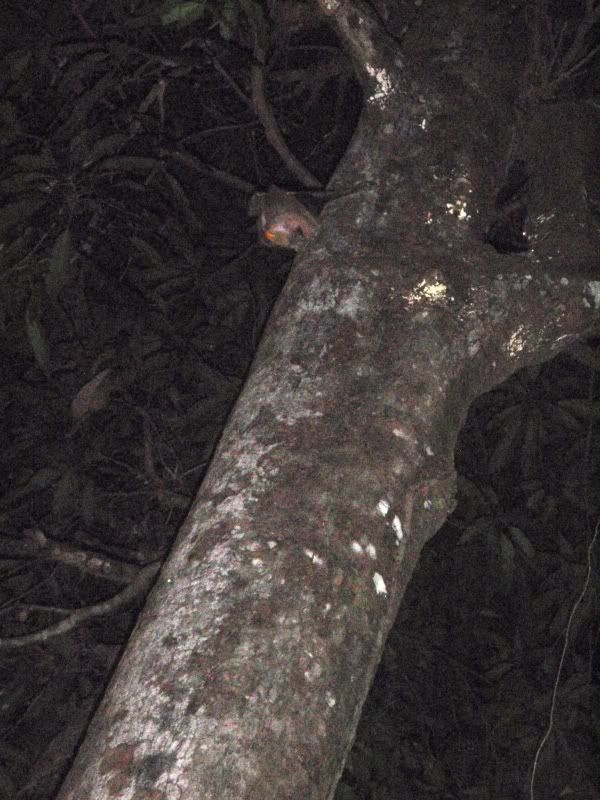
There were colugos too of course. Not counting my earlier sightings, there were almost 20 sightings of flying creatures at night.
If I could afford an infra-red camera or video camera, what shots one could get. These are from an Olympus point and shoot. Were bringing the kids here next year to see this
Basically they are natures caped crusaders with the largest cloak from Little finger to foot to tail and webbed digits. They can glide at least 70 metres.
These are generally not easy to find, let alone shoot, since they fly at night but on
Langkawi in the Andaman Sea they can be found quite easily.
Just strolling in the evening I saw several immobile on trees.

They have good fieldcraft.

They favour the shady side of the tree so a potential predator is looking against the sun and in the tropics that hurts.

At evening time is easier to make out the shape of the colugo but that made photographing them a challenge against the setting sun.

Find the colugo


While looking this fellow got into the picture.


In the late evening I met with Dev a nature guide whom I knew slightly. This is his turf and he is just the person to observe colugos with at night. He had a group of tourists and I stayed just behind so as not to get in his way. We were waiting for dusk.
Dev is a character. His introduction to wildlife is not dry textbook stuff but full of drama and humour. There were two species of monkey on the island omnivorous macaques and herbivore langurs.
Whats the difference between the two? he asked in his deep voice. Some tentative answers were offered but he was not satisfied.
Testicles, he boomed, look at the macaques testicles pointing at a particularly well endowed mature male. He then went on to describe the different social structures and the role of aggression in macaque life.
Who do you think he is most likely to attack, he inquired of a boy just in his teens, Him. Her, me or you?
The boy had no answer.
You, he said solemnly like a mourner, his eyes opening wide like a silent movie negro.
We are mature males Alpha males he will not get into a fight with us. Or her, she is a female. He will attack you, a young male.
Almost on cue, the big macaque opened his mouth and showed his Dracula like fangs and the boy, quite nervous now, withdrew into the middle of the group.
The talk went on in this vein everybody paying close attention to Dev.
Night had fallen and Dev illuminated colugo after colugo. He did not wave his torch around but seemed to be able to see them and then lit them up.



That was great for viewing but not for photography as they quickly went into aerial E & E
This is what I took. At least I got the eye.

Not only were there many colugos but there were Giant Red Flying Squirrels. When one took off and flew over us it looked like a flying dog! Almost half a metre long it seemed far bigger with its shaggy membrane open.
There were ordinary flying squirrels as well and even a pygmy flying squirrel which dive-bombed me and flew about a foot over my head according to spectators.

There were colugos too of course. Not counting my earlier sightings, there were almost 20 sightings of flying creatures at night.
If I could afford an infra-red camera or video camera, what shots one could get. These are from an Olympus point and shoot. Were bringing the kids here next year to see this
